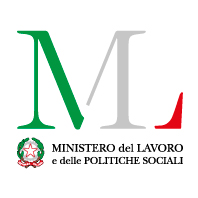The Capitoline Museum is the main civic and municipal museum in Rome and is a part of the “Sistema dei musei in comune”. The historic headquarters of the Capitoline Museum is the Palazzo dei Conservatori and Palazzo Nuovo, two buildings overlooking the Piazza del Campidoglio. The Capitoline Museum was originally founded in 1471, when Pope Sixtus IV donated a group of bronze statues with great symbolic value to the people of Rome. The museum was opened to the public in 1734, under Pope Clement XII, and is considered the world’s first museum, conceived as a place in which art could be seen by everyone and not just by its owners. The collections have close ties with the city of Rome and the majority of the works come from here. Perhaps the most famous piece in the museum is the equestrian statue of Marcus Aurelius.
The Capitoline Museum is very attentive to the needs of all its visitors. It is particularly accessible to deaf people, thanks to an Italian sign language video with subtitles, available online, to accompany the visitor along the whole museum route. To guarantee deaf visitors a pleasant, complete museum experience, the area of the Temple of Jupiter has a touch screen station with Italian sign language video with subtitles about the history of the Capitoline Hill, created as part of the accessibility projects of the “Musei da toccare” programme. Through Zètema, Roma Capitale services company, it is also possible to reserve (email to didattica@zetema.it or tel. 060608) guided Museum visits, with Italian Sign Language translator or guide.
Click here for more information about tickets to the Capitoline Museum.
Opening times
Daily 9.30-19.30
24 and 31 December: 09:30 – 14:00
The ticket office closes one hour before the gallery
For information about extraordinary opening and/or closing times, please see the specific page for Notices on the Capitoline Museum website.
The Italian Sign Language video guide with Italian subtitles is available online.
Please check the Capitoline Museum for information about accessibility to people with physical disabilities.


